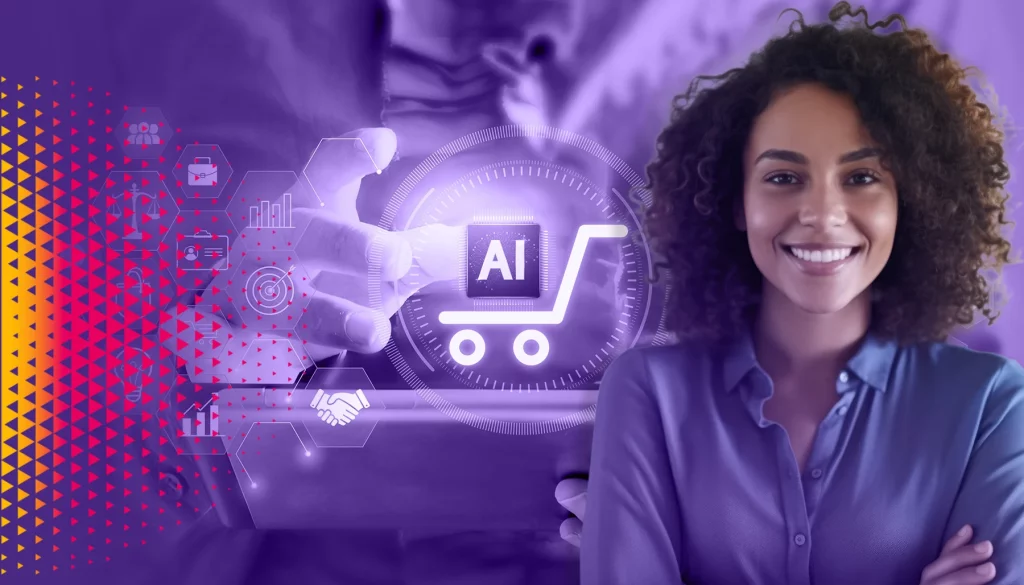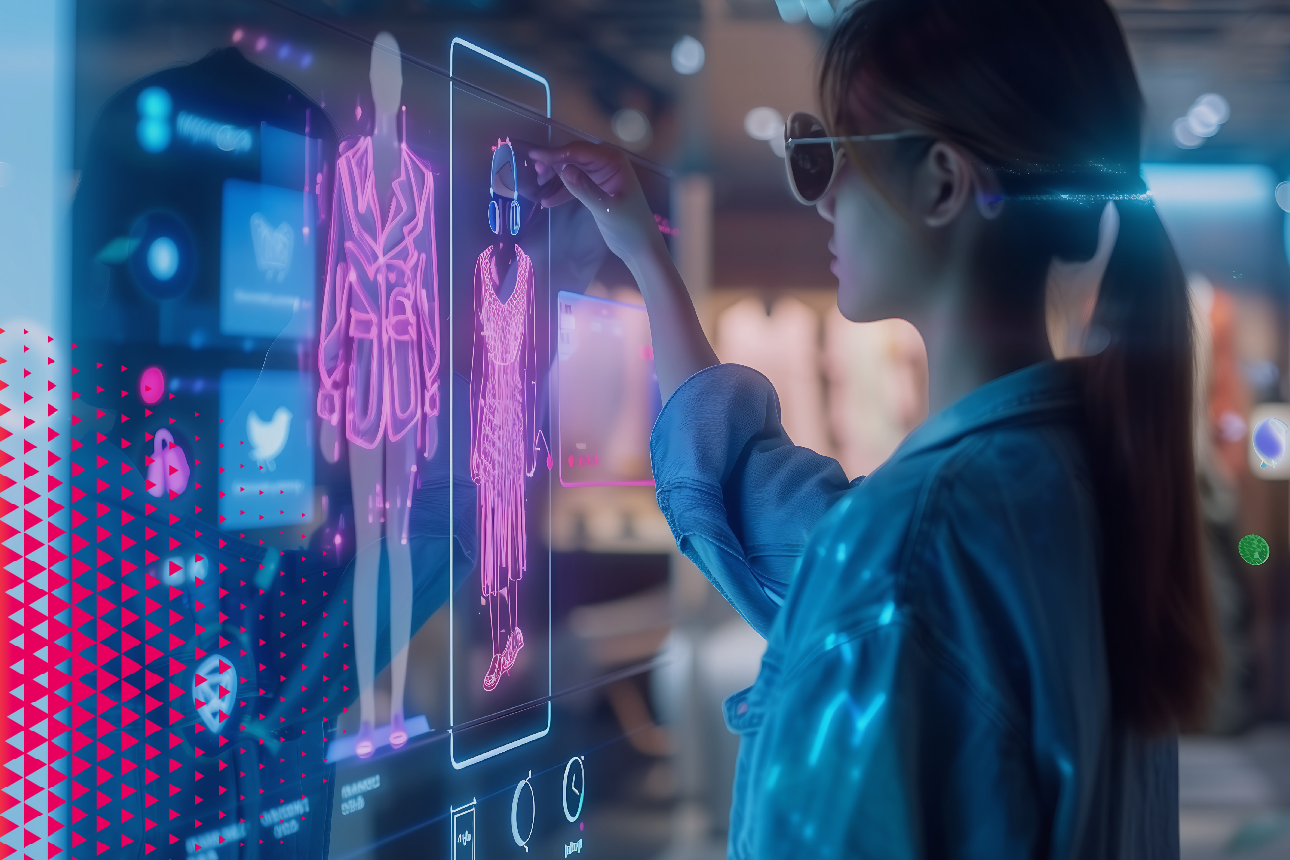AI in Retail: Applications, Benefits, and Business Perspectives

Information technology, scientific research, industry, finance, medicine… Artificial intelligence is revolutionizing every sector, and retail is no exception. Brands and retailers are increasingly adopting AI, unlocking new opportunities to streamline operations and deliver a distinctive customer experience.
How is AI shaping the future of retail? What are its benefits and applications in sports stores? How can you leverage its full potential? Let’s dive into the world of artificial intelligence and explore what it can achieve for you.
AI in Retail: The Revolution of an Industry
Since 2017, the adoption of Artificial Intelligence has more than doubled: today, 50 to 60% of organizations use AI. From robotics and conversational interfaces to deep learning, both products and companies are increasingly integrating AI capabilities to automate and optimize their operational processes.
As consumer habits evolve and stores become increasingly digitalized, companies face the crucial challenge of adapting to buyer expectations. Today, most purchasing decisions are made online, allowing consumers to search for information, compare products, and read reviews before ever stepping foot in a store. This trend has upended the traditional retail landscape, compelling brick-and-mortar stores to provide a seamless experience that bridges online browsing and in-store shopping, ensuring a continuous and cohesive customer journey.
This is where artificial intelligence makes its mark in retail. AI, as the name implies, refers to a machine’s capacity to replicate human intelligence. It leverages algorithms and machine learning models to analyze and interpret data, make decisions, solve problems, and emulate various aspects of human behavior. As a strategic ally for retailers, AI enhances the bond between a company and its customers.
Good to Know: AI Figures in 2023
- A McKinsey study reveals that generative AI could boost total retail revenue by 1 to 2%, resulting in a productivity gain of $400 to $600 billion.
- Investment in artificial intelligence is on the rise, with half of the companies indicating that over 5% of their digital budgets are now dedicated to AI.
The Advantages of AI in Retail
En définitive, l’intelligence artificielle appliquée au retail permet d’impacter la totalité du mix marketing d’une entreprise. Produits et services, prix, distribution, communication, personnel, packaging, processus opérationnels… C’est l’ensemble de la chaîne de valeur qui bénéficie de l’IA.
Better Understand Your Market
AI allows for a deeper understanding of the sales environment for products. By analyzing customer data, AI identifies consumer preferences and purchasing behaviors, enabling companies to better target their offerings and meet market demands. Precise customer segmentation sharpens marketing strategies and creates more tailored interaction models.
AI provides valuable insights for dynamic and competitive pricing strategies. Utilizing data, stores can adjust prices in real-time, maximizing revenue while staying competitive.
For customer relations, AI optimizes communication through automation, allowing for personalized interactions and offers. By analyzing customer data, retailers can enhance customer relationships and provide a higher-quality, more personalized experience. For instance, in 2022, Chronopost boosted its revenue by 85% with AI-optimized campaigns.
Build Customer Loyalty
AI helps retain customers by creating a seamless experience across physical and digital channels. Intelligent chatbots offer 24/7 responsive customer service, personalized product recommendations based on search history, both online and in-store, and expedite returns and refunds through automation. High-quality omnichannel service is essential for customer satisfaction.
Beyond providing a seamless shopping experience, AI drives retail innovation. It enriches the shopping journey while boosting customer satisfaction. Virtual fitting rooms and interactive displays—all tools are leveraged to entice consumers to enter the store and enjoy their visit.
Optimize Internal Processes
AI plays a crucial role in optimizing a store’s internal processes, especially supply chain management. By predicting demand and adjusting stock levels, AI helps businesses improve product availability, minimizing costs from overstock and stockouts, while ensuring products are available to customers at the right time
Additionally, AI optimizes warehouse organization by analyzing sales data, demand forecasts, and delivery times. Using machine learning algorithms, AI determines the optimal product layout in the warehouse to maximize picking and packing efficiency. This accelerates order preparation and reduces errors. Overall, AI enhances visibility into merchandise flows and delivery times. Real-time analysis helps detect potential issues, such as supply chain delays or bottlenecks, enabling retailers to take quick and effective corrective action.
Recommended Reading : 6 Innovative Retail Trends in 2024

Interoperability: How to Make the Most of AI
Leveraging Artificial Intelligence to Boost Your Retail Business
- Harnessing the power of artificial intelligence in your retail business starts with having effective tools and a dedicated team:
- AI thrives on precise, high-quality data, making a reliable data collection and management system essential.
- Ensure your solutions are user-friendly for employees, encouraging adoption and effective use within teams.
- Choose a cloud-based SaaS brand management solution to boost performance and remove technical barriers.
To optimize AI in retail, focus on the interoperability of your management software. Interoperable software enables different solutions and systems to share information and work together effortlessly. This is achieved through APIs (Application Programming Interfaces), which allow different software to communicate seamlessly.
Interoperable management software for sports brands offers significant benefits from high-value external solutions:
- Analyze real-time sales data to spot trends, purchasing behaviors, and customer preferences, enabling informed decisions in supply chain management and marketing.
- Gain deeper customer insights to refine business strategies, particularly loyalty programs.
- Integrate weather data: Using weather APIs, the software can assess local forecasts and adjust stock levels accordingly. For instance, if a heatwave is expected, increase the inventory of light clothing and outdoor gear to meet anticipated demand.
Key Takeaways:
- Artificial intelligence is a crucial performance booster for retailers, significantly transforming the industry to enhance customer satisfaction.
- Applied to retail, AI allows for improved market understanding, trend analysis, process optimization (covering the 7 Ps of the marketing mix!), and innovation to retain customers.
- To maximize ROI in AI solutions, it is essential to have interoperable tools that ease team adoption and ensure seamless integration into the existing software ecosystem.



